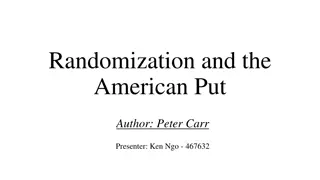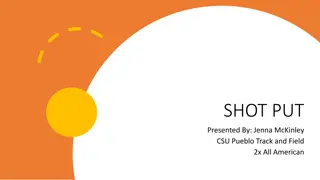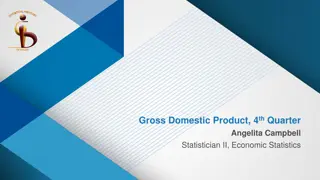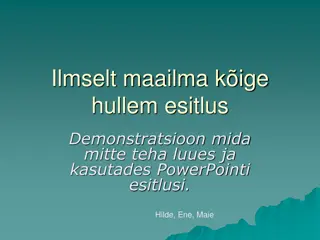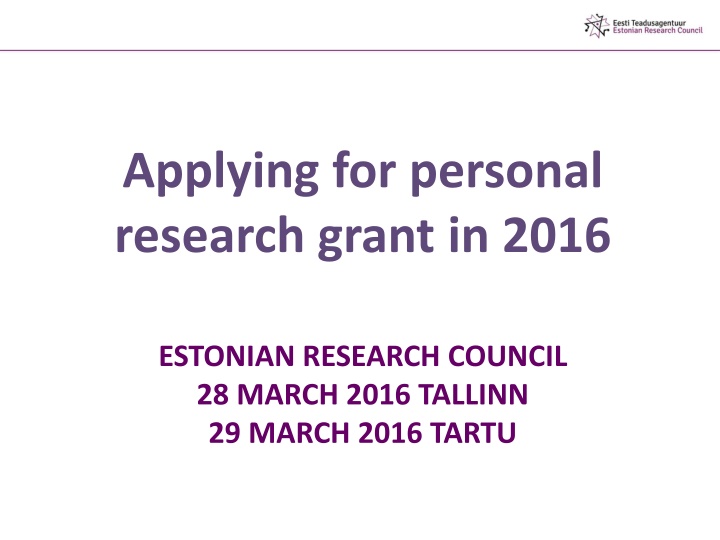
Research Grants and Funding Trends in Estonian Research Council 2016
Explore the application process, funding figures, and research areas of the Estonian Research Council in 2016. Discover the allocation of grants, total funding applied for, and the timeline for the 2016 call. Gain insights into the distribution of funds across different research areas and the new initiatives introduced in 2016.
Download Presentation

Please find below an Image/Link to download the presentation.
The content on the website is provided AS IS for your information and personal use only. It may not be sold, licensed, or shared on other websites without obtaining consent from the author. If you encounter any issues during the download, it is possible that the publisher has removed the file from their server.
You are allowed to download the files provided on this website for personal or commercial use, subject to the condition that they are used lawfully. All files are the property of their respective owners.
The content on the website is provided AS IS for your information and personal use only. It may not be sold, licensed, or shared on other websites without obtaining consent from the author.
E N D
Presentation Transcript
Applying for personal research grant in 2016 ESTONIAN RESEARCH COUNCIL 28 MARCH 2016 TALLINN 29 MARCH 2016 TARTU
PUT in figures (1/4) Funding of the Estonian Science Foundation research grants and personal research grants 2007-2017 700 12.0 600 10.0 500 Number of projects 8.0 Sum (m EUR) 400 6.0 300 4.0 200 2.0 100 0 0.0 2007 2008 2009 2010 2011 2012 2013 2014 2015 2016 2017 Axis Title Total number of projects funded including new projects Ongoing projects (m.eur) including new projects (m.eur)
PUT in figures (2/4) PUT and PUTJD applications submitted in 2015 Research area Number of submitted applications StG ExplG Number of financed applications StG ExplG Total Total Biosciences and Environment 21 38 59 6 8 14 Culture and Society 39 45 84 4 7 11 Health 12 21 33 4 5 9 Natural Sciences and Engineering 41 66 107 11 7 18 PUT postdoc 66 8 Total 113 170 349 27 25 60 (= 17%)
PUT in figures (3/4) Funding applied for in 2015 (in ) Total funding applied for Sum total of funded applications StG Research area StG ExplG Total ExplG Biosciences and Environment Culture and Society 1 429 881 2 575 070 4 004 951 330 000 475 680 2 392 193 2 884 941 5 277 134 184 800 354 000 Health 774 263 1 440 396 2 214 659 178 800 249 600 Natural Sciences and Engineering Total PUT 2 606 005 4 721 965 7 327 970 477 360 384 636 7 202 342 11 622 371 18 824 713 1 280 960 1 353 916 Total PUT post-doc Grand total 4 781 820 23 606 533 564 315 3 199 192 (= 13,6%)
PUT in figures (4/4) Share of research areas in money allocated Research area StG ExplG Total Biosciences and Environment 34,3% 27,0% 30,6% Culture and Society 14,4% 26,1% 20,4% Health 14,0% 18,4% 16,3% Natural Sciences and Engineering 37,3% 28,4% 32,7%
Call timeline 2016 Call will open on 1 April 2016 and close on 30 April 2016 17:00 Estonian time
Whats new in 2016? (1/11) Start-up and exploratory grants 7.3. The following must be set out in the application: 7.3.5 the general theoretical background of the planned research project and its link to research carried out by the Principal Investigator and other research staff. In case the project is not linked to the previous research and its results, also a justification for the change of research direction 7.3.8. a description of previous research and development activities of the Principal Investigator during the last 10 years also indicating the Principal Investigator s contribution to the (relevant from the project s point of view) publications linked to the application
Whats new in 2016? (2/11) Start-up and exploratory grants 8.2. A Principal Investigator of a start-up research grant may be a researcher who: 8.2.2. has completed postdoctoral studies (preferably abroad) after receiving their doctorate or equivalent qualification. The Evaluation Committee may, where justified, consider eligible a person who has not completed postdoctoral studies but has comparable research experience (preferably abroad), as the principal investigator of a start-up grant 8.2.3. at the time of implementing the research project, is employed full-time at the host institution and has a place of work in Estonia
Whats new in 2016? (3/11) Start-up and exploratory grants 8.1. A Principal Investigator of an exploratory research grant is a person who: 8.1.1. has been awarded a doctorate or who has qualification equal thereto 8.1.2. is employed full-time at the host institution and whose place of work is in Estonia at the time of implementing a research project
Whats new in 2016? (4/11) Start-up and exploratory grants 12.10. Based on the final evaluations and scores, the Evaluation Committee shall draw up rankings of applications in each research field separately for exploratory and start-up grants 17.2. The annual report is drawn up by the Principal Investigator and the host institution submits it to the Council via the ETIS no later than by 1 March of the year following the reporting year.
Whats new in 2016? (5/11) Start-up and exploratory grants 20.2. The following is indicated in the final report of a research project: 20.2.1. the results (including the main results in Estonian and in English in a popular essay format, publications and other intellectual property right objects) in accordance with the purposes specified in the application; 21.3. Upon publication of the results of implementation of a research project, it is indicated which funds were used for the implementation of the research project. Scientific articles which do not contain such an indication (= acknowledgement) will not be considered in the final report.
Whats new in 2016? (6/11) PUT postdoc grant The aim of postdoctoral grant is to support PhD degree holders or those with equivalent qualification to continue their independent research careers in strong research groups, and to support research in the interests of Estonian society and economy. In the award of postdoctoral grant to applicants going abroad, the applicants who are Estonian citizens, have a permanent right of residence in Estonia or hold a permanent permit of residence, are preferred.
Whats new in 2016? (7/11) PUT postdoc grant The Estonian Research Council has the right to establish every year priorities with regard to research and development areas and types of grant. 2017 only outgoing postdoc grants to be funded
Whats new in 2016? (8/11) PUT postdoc grant The following individuals can submit an application: who has not undertaken doctoral studies nor obtained a doctorate, including the cotutelle agreement, in the same institution where the postdoctoral grant will be implemented In justified cases, the Evaluation Committee may consider a person who has not yet obtained a doctorate or the equivalent qualification to meet the set requirements on the assumption that the said person will obtain a doctorate or the equivalent qualification before entering into a contract stipulated in Section 13.1.
Whats new in 2016? (9/11) PUT postdoc grant The postdoctoral candidate may request a non-recurrent relocation allowance if he/she has not lived, worked or studied 180 days before the call start date in a country where the collaboration institution is located. The relocation allowance is a one-off payment to the host institution. The taxes prescribed by Estonian law shall apply to the relocation allowance.
Whats new in 2016? (10/11) PUT postdoc grant The application should specify: - the expected outcomes of the postdoctoral project, their potential applicability, importance for Estonian science, society and economy, and possible future directions The Evaluation Committee evaluates the applications and provides a final assessment and score for each application, relying on the assessments and scores of the expert committees and taking into consideration: - the need for and benefits of the postdoctoral project for the development of Estonian society and economy, including the need for and benefits of the project according to priorities stipulated in Section 3.4.
Whats new in 2016? (11/11) PUT postdoc grant Upon publication of the results of implementation of a postdoctoral research project, it is indicated which funds were used for the implementation of the research project. Scientific articles which lack a reference to the allocated grant will not be taken into account in the final report.
Tips to applicants (1/2) Update your CV check your employment data, clearly indicate your postdoc or other international experience, etc; Clearly bring out your contribution in the research papers attached to the application (e.g first or last author, second author, data analysis, etc); Use the text boxes provided in the application form to make all relevant comments
Tips to applicants (2/2) Present your bibliometric data drawn from ISI WoS, Scopus or Google Scholar data bases in the tab Persons . Even better add your ResearcherID for the convenience of reviewers! Read very carefully the Guidelines for evaluating personal research funding applications Put on the reviewer hat before confirming your application
Funding rates in 2017 (1/2) For 2017, ETAg establishes the PUT rates as follows: Principal Investigator of a start-up grant 27,000 euros Principal Investigator of an exploratory grant 32,000 euros members of the research staff 16,000 euros All scholarships, staff costs of technical or auxiliary staff and other participants shall be counted into these calculated staff cost rates. Overhead costs together with depreciation account for 20% of the amount of the direct costs (excl. subcontracting).
Funding rates in 2017 (2/2) For 2017, the staff cost for the postdoctoral fellow will be 27,000 euros. The amount of other research related costs will be as follows: experimental research project 6,000 euros; non-experimental research project 3,200 euros; a non-recurrent relocation support 6500 euros In case of a postdoctoral research project, the overhead expenses account for 5% of the amount of direct expenses (excl. non-recurrent relocation support).
More information http://www.etag.ee/en/funding/research- funding/personal-research-funding/call-2016/ General information: Siret Rutiku (siret.rutiku@etag.ee, tel 7317 381) PUT postdoc: Kadri M ger (kadri.m ger@etag.ee, tel 731 358)
Funding Officers Biosciences and Environment: Silja Moik (tel 7 317 366, silja.moik@etag.ee) Culture and Society: Madis Saluveer (tel 7 300 326, madis.saluveer@etag.ee) Health: Iige Maalmann (tel 7 317 363, iige.maalmann@etag.ee) Natural Sciences and Engineering: Rainer Randmeri (tel 7 317 367, rainer.randmeri@etag.ee)






